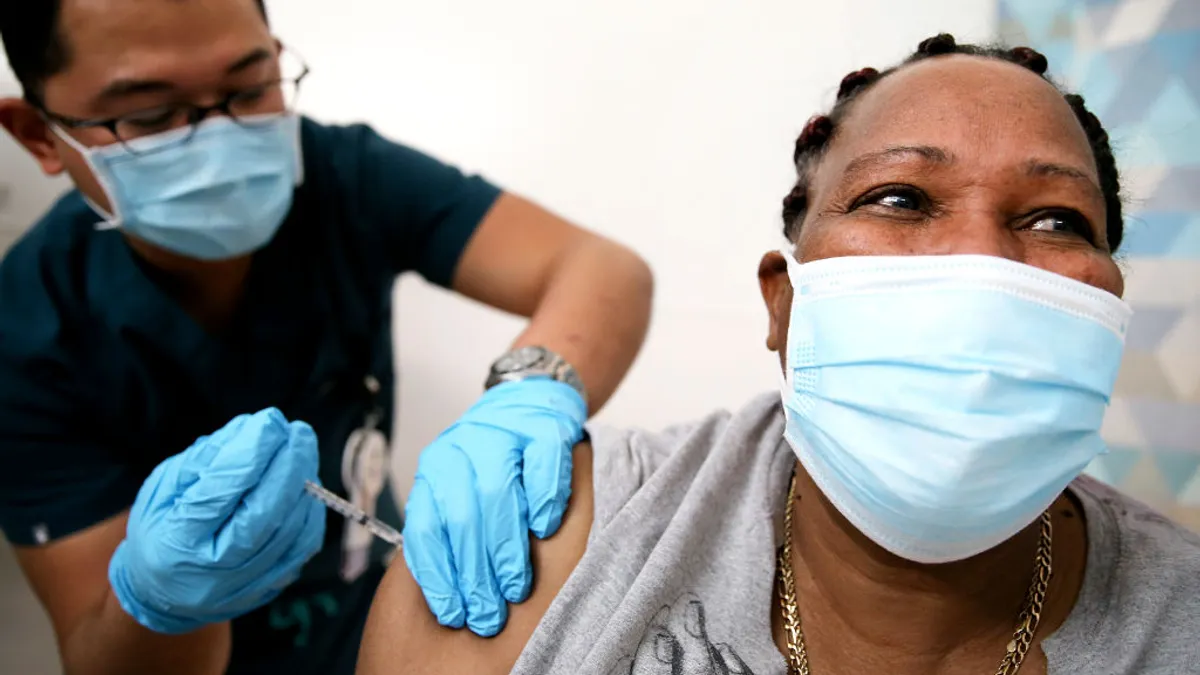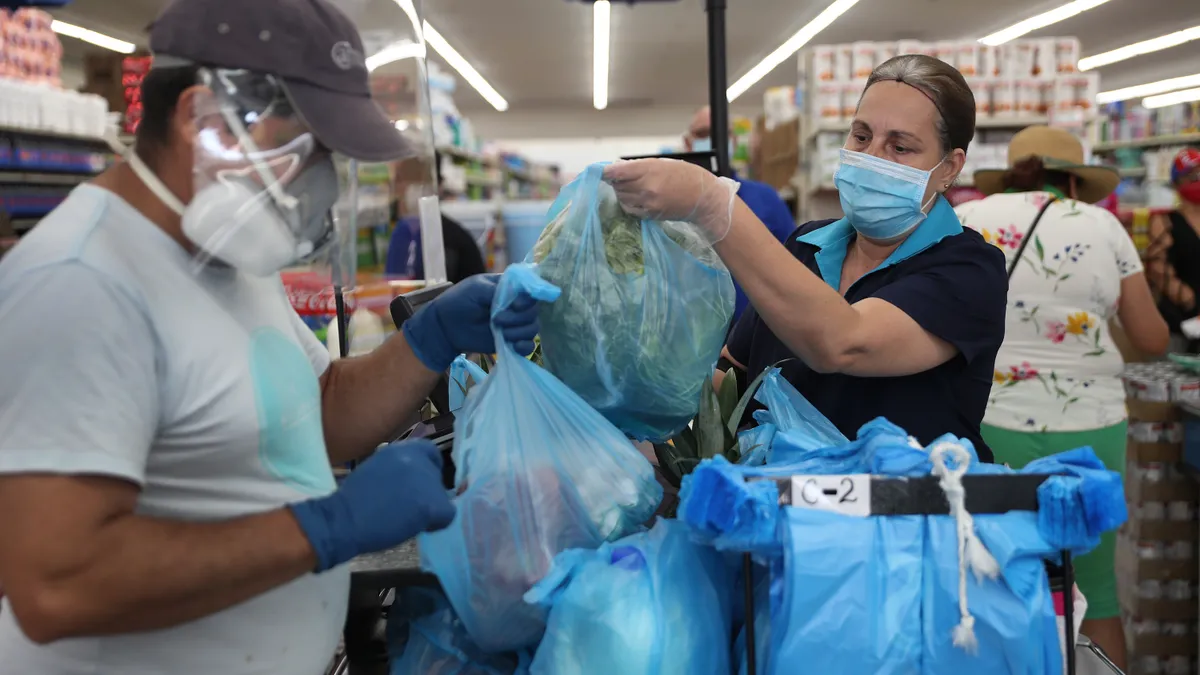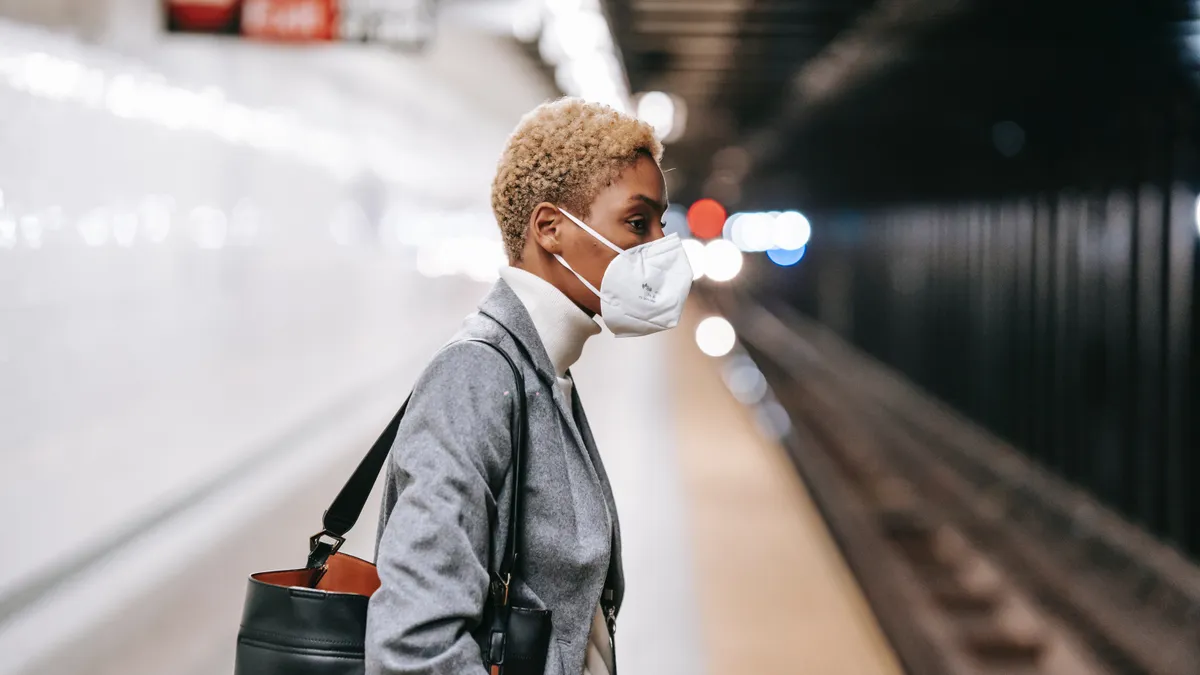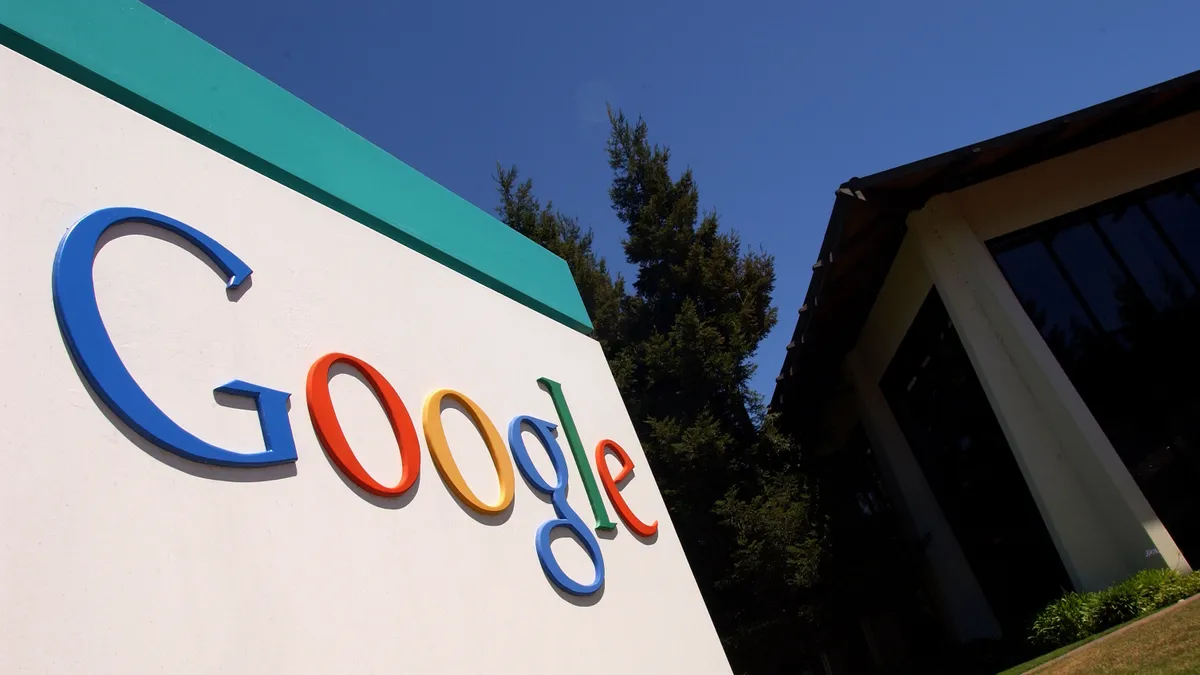Dive Brief:
- As the Delta variant spreads and confirmed cases increase within U.S. communities, a number of large employers have shifted course on COVID-19 vaccine mandates.
- In one of the latest examples, food processor Tyson Foods announced Tuesday it would require employees at U.S. office locations to be fully vaccinated by Oct. 1, while all others would need to be vaccinated by Nov. 1, subject to union bargaining. "We did not take this decision lightly," President and CEO Donnie King said in a memo to employees shared publicly by Tyson Foods. "We have spent months encouraging our team members to get vaccinated – today, under half of our team members are."
- Similarly, Microsoft confirmed in an email to HR Dive that it will require proof of vaccination from all employees, vendors and guests entering its U.S. buildings beginning September. "We continue to review the situation on a local basis in each region/country/state where we work and will adjust dates and policies as needed," a spokesperson wrote.
Dive Insight:
One by one, employers are implementing more detailed responses to the next stage of the COVID-19 pandemic.
Responses from Tyson Foods and Microsoft followed those made by a growing list of organizations in a variety of industries, ranging from technology to retail to food service. On July 28, Google CEO Sundar Pichai announced that the company would extend its global voluntary work-from-home policy through Oct, 18 in addition to implementing a vaccination requirement for those returning to in-person work. Pichai further stated that those with "special circumstances" would soon have access to temporary work options allowing them to apply to work from home through the end of 2021.
Days later, Walmart President and CEO Doug McMillon announced in a statement that the company would implement a vaccination requirement for all market, regional and divisional associates who work in multiple facilities, as well as all campus office associates. These employees will need to get vaccinated by Oct. 4, McMillon said, "unless they have an approved exception."
Other employers have gone a step further. St. Louis-based healthcare system Ascension Health said July 27 that it would require all employees to be vaccinated, whether they worked on care sites or remotely and whether or not they provide direct patient care. The company said it has set its timeline for completing this requirement for Nov. 12.
Each of the employers in these cases have indicated that some sort of exception may be made for those with circumstances that make them unable to receive a vaccine. Tyson Foods, for example, said its mandate will include exceptions for workers who seek medical or religious accommodation. Microsoft said employees who have a medical condition or other protected reason that would prevent them from getting vaccinated, including religion, would be able to receive an accommodation.
Those carve-outs reflect updated May technical assistance from the U.S. Equal Employment Opportunity Commission. The agency said employers may implement policies requiring all employees who physically enter a workplace receive a COVID-19 vaccine as long as those policies comply with employers' duty to provide reasonable accommodations under Title VII of the Civil Rights Act of 1964 and the Americans with Disabilities Act.
The trend is especially eye-opening due to research on employers that occurred mere months before these announcements. Law firm Fisher Phillips found in a late May survey of employers that 83% were not considering vaccine mandates, up from 64% in a similar survey conducted in June. Those who were not considering doing so cited reasons including worries about conflicts with anti-discrimination laws.
On the other hand, employees in an Eagle Hill Consulting survey published in February were divided over the question of workplace mandates, with 52% saying that employers should adopt vaccination mandates. A separate survey conducted between June and July as part of the COVID States Project found that 64% of U.S. respondents approved of federal, state and local government measures requiring all people to get a COVID-19 vaccine.
Legal cases resulting from vaccine mandates may develop over the coming months, but at least one federal district court has ruled in favor of an employer that implemented such a mandate.
Elsewhere, employers have opted to reinstitute mask requirements for employees and customers. One example is Target, which has said it will follow updated guidance from the Centers for Disease Control and Prevention and require that all employees wear masks while also strongly recommending that guests in areas with substantial or high risk of COVID-19 transmission wear masks.



















